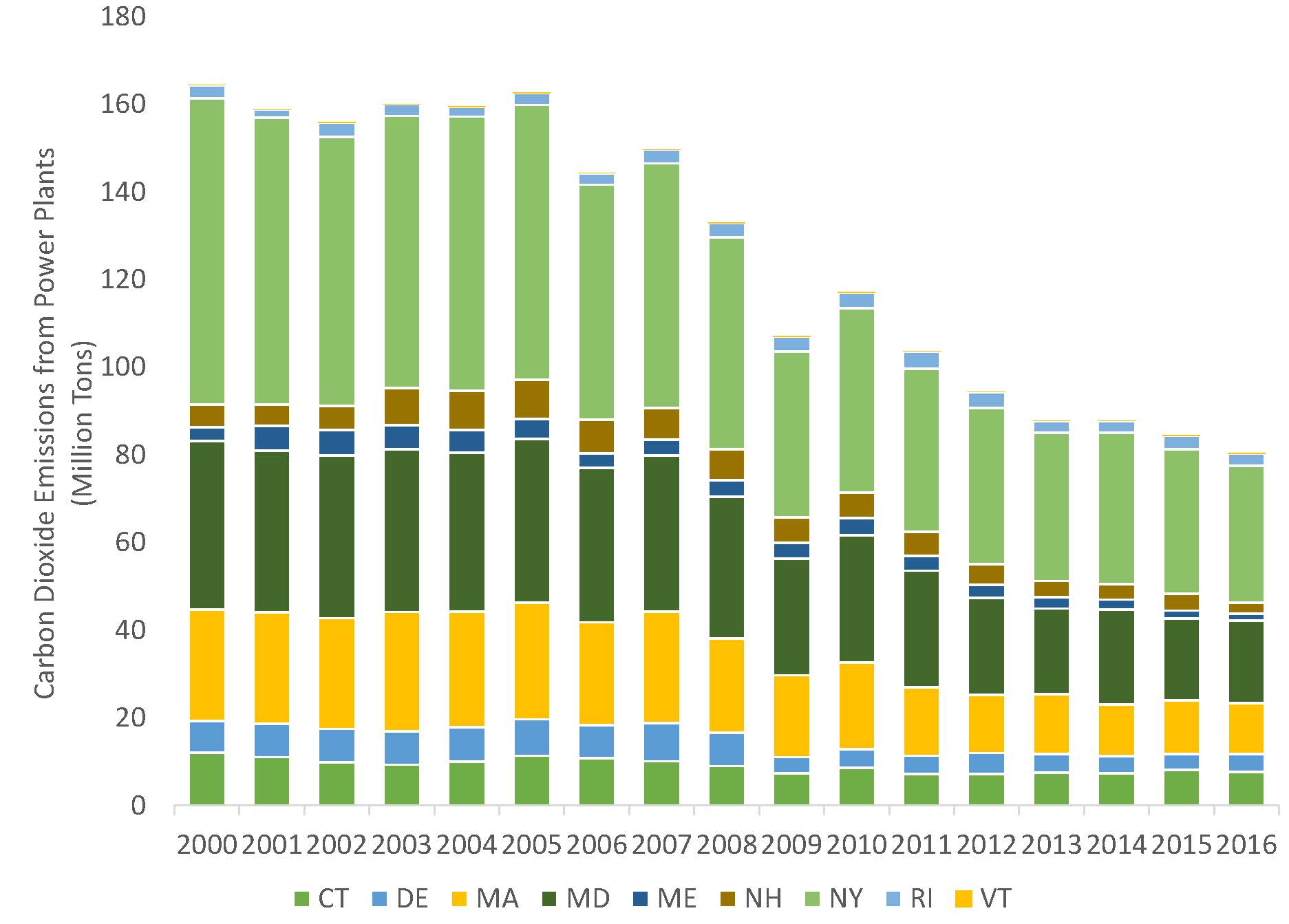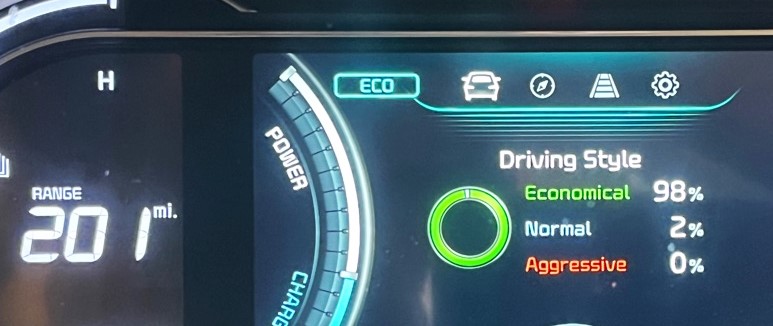
Cooler Together
The Benefits of Cooperative Action Against Global Warming in the Northeast, Mid-Atlantic and Beyond
Now more than ever, state leadership is critical for America to make progress in the fight against global warming. The Regional Greenhouse Gas Initiative shows the way forward – bringing together political leaders of both parties around effective policies to curb carbon pollution and accelerate the transition to clean energy.
Downloads
Since it began in 2008, the Regional Greenhouse Gas Initiative (RGGI), the nation’s first regional program for limiting carbon dioxide emissions from power plants, has been wildly successful. The program, in place in nine northeastern and mid-Atlantic states, caps power plant emissions, puts a price on carbon pollution, and reinvests much of the revenue into programs that advance the region’s transition from fossil fuels to clean energy.
Now more than ever, state leadership is critical for America to make progress in the fight against global warming. The Regional Greenhouse Gas Initiative shows the way forward – bringing together political leaders of both parties around effective policies to curb carbon pollution and accelerate the transition to clean energy. Leaders in the Northeast and Mid-Atlantic states should continue to support RGGI and other policies to cut carbon pollution, leaders in nearby states should consider joining the program, and leaders from around the country should follow the example of the program when taking their own steps to address global warming.
Regional efforts to cut pollution from power plants have helped move the Northeast and Mid-Atlantic toward a healthier future built on clean energy. Benefits of the Regional Greenhouse Gas Initiative include:
- Contributing to halving the region’s CO2 emissions from electric power plants since 2005, with plans to cut emissions to one-third of 2005 levels by 2030;[i]
- Providing more than $5.7 billion in health benefits to the region, including averting hundreds of premature deaths;[ii]
- Raising more than $2.78 billion for member states, including more than $1 billion in investments in energy efficiency improvements and $270 million for clean and renewable energy investments, with the potential to raise more than $7 billion more by 2030;[iii]
- Saving consumers more than $773 million on their energy bills;[iv]
- $3 billion in net economic benefits, including the creation of more than 30,000 jobs in the region.[v]
The success of the Regional Greenhouse Gas Initiative shows that aggressive, bipartisan action on climate changes is possible, and that it can lead to dramatic progress and broad-based benefits for the region.
Figure ES-1. CO2 Emissions from Power Plants in the RGGI States, 2000-2016.[vi] (RGGI was fully implemented beginning in 2009).

* Note: VT emissions are too low to be easily visible on the chart.
Northeastern and Mid-Atlantic states should build on the success of the Regional Greenhouse Gas Initiative by:
- Continuing to invest in clean energy and adopt complementary policies that make it as easy as possible for individuals, businesses and institutions to reduce energy consumption and switch to clean, renewable sources of energy.
- Extending the approach used to successfully reduce emissions from power plants to other sectors of the economy, such as transportation.
Other states should consider putting a price on carbon pollution and reinvesting the proceeds in the transition to clean, renewable energy.
- New Jersey and Virginia will benefit greatly from joining RGGI. Between the two states, joining RGGI could generate as much as $4.2 billion in revenue by 2030 that could speed their transition to clean energy, while reducing as much as 88 million tons of carbon dioxide emissions cumulatively.
- Other states around the United States should consider adopting similar approaches to reducing greenhouse gas emissions.
[i]Bruce Ho and Jackson Morris, National Resources Defense Council, RGGI Agrees to Cut Power Plant Pollution by Another 30%, archived at https://web.archive.org/web/20171127222309/https://www.nrdc.org/experts/bruce-ho/rggi-agrees-cut-power-plant-pollution-another-30, 27 November 2017.
[ii] Abt Associates, Analysis of the Public Health Impacts of the Regional Greenhouse Gas Initiative, 2009–2014, January 2017.
[iii] Regional Greenhouse Gas Initiative, Investment of RGGI Proceeds in 2015, October 2017.
[iv] Ibid.
[v] Paul J. Hibbard et al., Analysis Group, The Economic Impacts of the Regional Greenhouse Gas Initiative on Nine Northeast and Mid-Atlantic States: Review of RGGI’s Second Three-Year Compliance Period (2012-2014), 14 July 2015. These numbers reflect the benefits of RGGI in its first two compliance periods. Comprehensive information on RGGI’s third compliance period is not yet available.
[vi] This information was provided by RGGI’s COATS emissions tracking service, which can be accessed at https://rggi-coats.org/eats/rggi/.
Topics
Find Out More


Carbon dioxide removal: The right thing at the wrong time?

Fact file: Computing is using more energy than ever.

